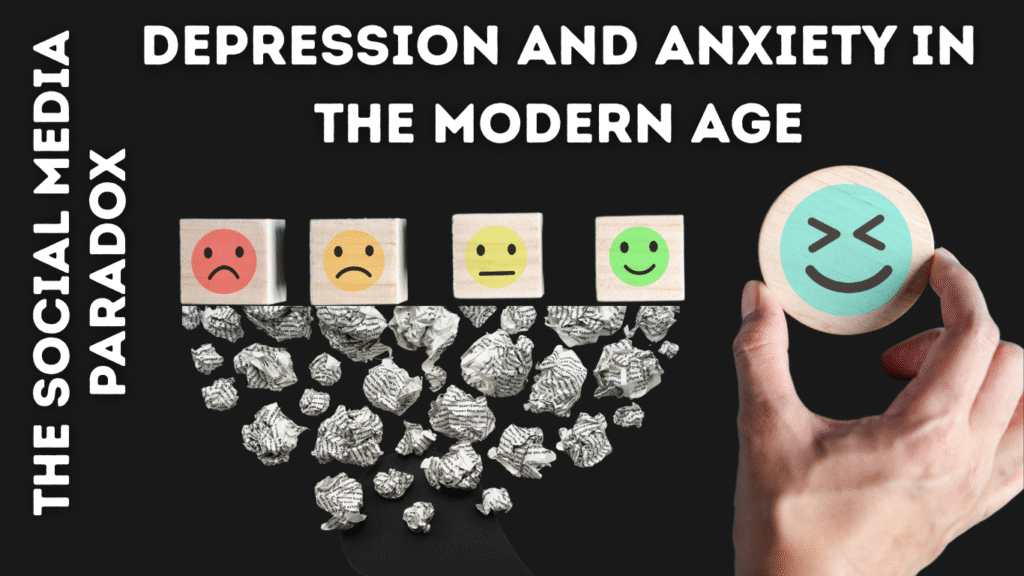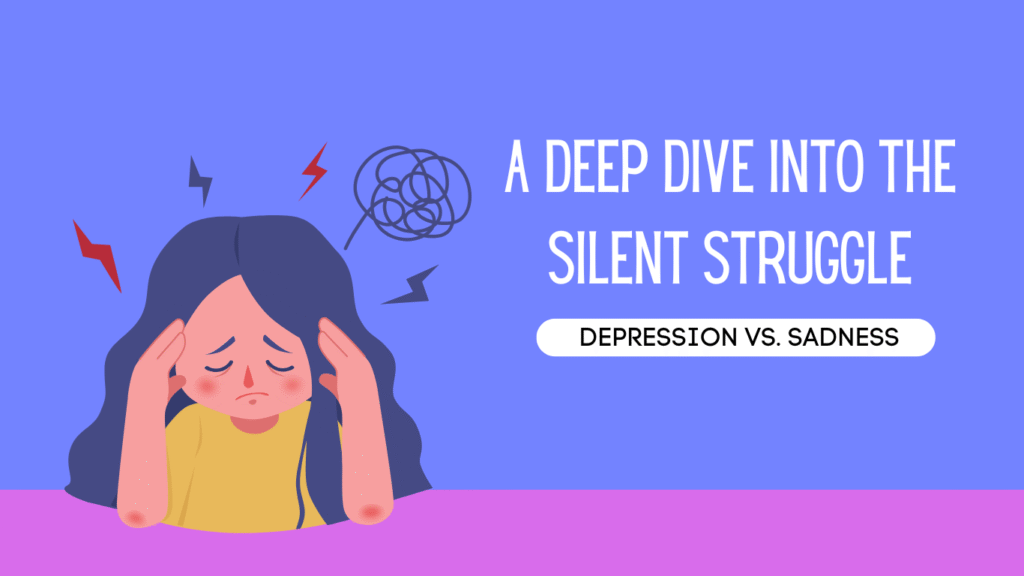Social Media and Mental Health – The Hidden Effects
The Rise of Social Media and Its Influence
Social Media Usage in Daily Life
Social media has completely transformed the way we connect, communicate, and consume content. From scrolling Instagram first thing in the morning to late-night TikTok marathons, it’s a constant part of modern life. But as it becomes more embedded in our daily routines, so does the question: how does social media affect mental health?
The answer is complex. Platforms like Facebook, Snapchat, Instagram, and Twitter give us instant access to people and ideas—but they also bombard us with constant comparisons, curated realities, and digital noise. As much as social media entertains, it also drains.
Why Social Networking is Bad (Sometimes)
While social media has benefits—community building, creativity, and learning—it also has a dark side. The phrase “social networking is bad” might sound extreme, but in certain contexts, it’s not wrong.
Studies have shown a correlation between heavy social media use and higher levels of:
- Anxiety
- Depression
- Low self-esteem
- Sleep disruption
- Body image issues
These platforms are designed to be addictive. The more time we spend online, the more likely we are to compare, feel inadequate, or experience fear of missing out (FOMO).
Social Media and Mental Health Statistics
- According to a 2023 study by the Pew Research Center, 69% of teens feel that social media causes them stress.
- A 2022 report from the Royal Society for Public Health found that Instagram was the most damaging platform for mental health among young users.
- Research from the American Psychological Association shows that individuals who use social media for more than three hours per day are significantly more likely to suffer from mental health issues.
How Does Social Media Affect Mental Health?
Anxiety, Depression, and Digital Comparison
One of the most dangerous aspects of social media is comparison. We scroll through images of perfect bodies, flawless homes, luxury lifestyles—and feel like we don’t measure up. This constant comparison can feed anxiety and depression, particularly in young adults and teens.
How Does Social Media Affect Mental and Physical Health?
- Elevated cortisol (stress hormone)
- Disrupted sleep cycles
- Fatigue and headaches
- Digestive issues from chronic anxiety
The Dopamine Feedback Loop and Addiction
Every time someone likes your post, comments on your selfie, or shares your story, your brain gets a hit of dopamine—the feel-good chemical. This creates a dopamine feedback loop, which trains your brain to keep seeking validation.
Social Media and Body Image
How Does Social Media Affect Mental Health and Body Image?
- Body dissatisfaction
- Low self-esteem
- Eating disorders
- Exercise compulsion
Filters, Perfectionism, and Self-Worth
Face-smoothing filters, body-slimming tools, and curated aesthetics are everywhere. What starts as fun and creative quickly turns harmful when users start to associate their self-worth with likes, comments, and their edited self-image.
Effects on Teen Girls and Body Confidence
- Higher rates of depression and anxiety
- Greater dissatisfaction with their bodies
- Increased risk of developing eating disorders
Sleep and Digital Overload
How Does Social Media Affect Sleep and Mental Health?
- Blue light from screens disrupts melatonin production
- Content can overstimulate your brain
- Doomscrolling increases anxiety
Blue Light and Brain Fog
Blue light from devices keeps your brain in “awake mode.” Even if you fall asleep, the quality of rest you get suffers. You may wake up feeling groggy, irritable, and unmotivated—a condition commonly referred to as brain fog.
Disrupted Sleep and Emotional Instability
- Increased irritability
- Heightened emotional reactivity
- Decreased coping skills
- Reduced ability to focus and learn
Teens, Identity, and Mental Health
How Does Social Media Affect Teens?
- Influence identity formation
- Increase peer comparison
- Expose teens to cyberbullying
- Pressure them into seeking validation through likes and comments
Social Validation and Peer Pressure
- Social anxiety
- Fear of rejection
- Poor self-image
- Obsessive checking and posting behaviors
Long-Term Emotional Consequences
Poor self-esteem, unhealthy relationship patterns, and chronic anxiety are often rooted in habits formed during the teenage years.
The Role of Magazines and Media Coverage
Magazine About Social Media Addiction and Mental Health
- The role of algorithms in feeding addictive behaviors
- How influencer culture shapes unrealistic standards
- How platforms are being designed for profit, not wellbeing
Influence of Popular Media on Mental Health Narratives
- Instagram hiding likes
- TikTok promoting screen breaks
- Apple and Android tracking screen time
Mental Health and Social Media Statistics
Real Numbers, Real Concerns
- 90% of teens aged 13–17 use social media daily. Of those, 45% report feeling overwhelmed by it.
- 1 in 3 teenage girls say that Instagram made them feel worse about their bodies.
- 70% of adults admit to checking social media before bed.
Trends Among Adults and Teens
- Adults spending more than 2 hours a day on social media report higher levels of perceived social isolation.
- Workplace burnout and imposter syndrome are rising.
- Young adults between 18–29 are the most likely to report feeling anxious or “not good enough.”
Is Social Media Bad for Mental Health?
Weighing the Pros and Cons
Pros:
- Allows for connection and community
- Raises awareness about mental health
- Encourages creativity and expression
- Provides access to education and resources
Cons:
- Promotes unhealthy comparisons
- Disrupts sleep and concentration
- Fuels anxiety and depression
- Leads to social media addiction
When It Becomes Harmful
- You check your phone immediately after waking up and before bed.
- You feel worse after being online.
- You obsess over likes, followers, or shares.
- You compare your life, body, or success constantly.
- You avoid real-life interactions because of online distractions.
How to Balance Social Media and Mental Health
Digital Detox and Screen Limits
- A 24-hour screen break once a week
- Turning off notifications
- Logging off apps after 9 p.m.
Mindful Use of Social Platforms
Ask yourself:
- Why am I opening this app?
- What am I hoping to feel?
- How do I feel after using it?
Curating a Positive Online Space
- Unfollow accounts that make you feel inadequate
- Follow creators who promote mental health and body positivity
- Use apps that limit screen time or block harmful content
- Engage in positive communities
Moving Forward With Awareness
Rethinking How We Use Technology
- Using social media to connect, not compare
- Taking control over your screen time
- Being aware of your digital habits
Mental Health Resources and Support
- Talk to a therapist
- Join a support group
- Use mental health apps like Calm, BetterHelp, or Headspace
- Open up to a trusted friend or family member
Conclusion
Social media is powerful. It can connect, inspire, educate—but it can also drain, distort, and harm. The link between social media and mental health is no longer up for debate. The evidence is clear: what we see on our screens shapes how we feel inside.
But here’s the good news: we can take back control. By setting boundaries, practicing mindfulness, and choosing what we consume, we can protect our peace. It’s not about quitting cold turkey—it’s about creating balance.
Remember, you’re more than a profile. You’re a real human being with a real life that deserves your full attention.
FAQs
- Can quitting social media improve mental health?
Yes, many people report reduced anxiety, improved focus, and better sleep after quitting or limiting social media use. Even short breaks can make a big difference. - How can I limit the negative effects of social media?
Set time limits, avoid using social media before bed, curate a positive feed, and practice mindfulness while using apps. - Are there any benefits to social media for mental health?
Absolutely. Social media can provide support communities, mental health education, and platforms for advocacy. It’s all about how you use it. - What age is safe for teens to use social media?
Experts recommend limited, supervised use starting at age 13. The key is teaching emotional resilience and digital literacy early. - How do I know if I’m addicted to social media?
If you feel anxious without your phone, check it constantly, or find it hard to stop scrolling even when you want to—those are signs of potential addiction.


